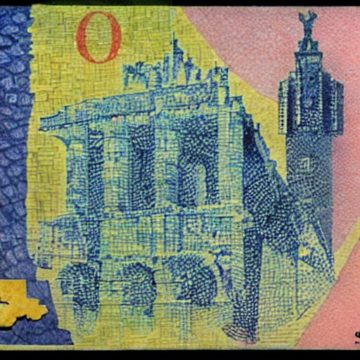 Jeremy Walton in Sidecar (image credit: Stable Diffusion):
Jeremy Walton in Sidecar (image credit: Stable Diffusion):
On 1 January, Croatians entered the latest EU-mandated experiment in whether monetary ‘portrayal can be convincing’, when they substituted their national currency, the kuna, for the euro, becoming the first member-state to do so since Lithuania in 2015. Like all EU states other than Denmark, Croatia formally accepted the obligation to enter the eurozone with its accession as the Union’s 28th – and still most recent – member in 2013. Its relatively prompt adoption of the currency contrasts with the persistent euro-scepticism of countries such as Sweden, the Czech Republic and Hungary, which continue to maintain their own currencies despite being much older members of the EU. This is largely attributable to the unflagging enthusiasm for Brussels emanating from the centre-right government of Prime Minister Andrej Plenković and his party the Croatian Democratic Union (HDZ; Hrvatska demokratska zajednica). Under Plenković, the HDZ has refashioned itself as a Christian Democratic party of the sort that is increasingly rare in the epoch of ascendant right-wing populism in Europe and beyond.
Ursula von der Leyen, the President of the European Commission, visited Zagreb to sanctify Croatia’s definitive embrace of the euro. (She and Plenković pointedly paid for their coffees with them). Such political fanfare has not been a panacea to apprehension about the new currency regime; Croatian citizens are well-acquainted with the contortions and consternations that the euro can involve.
More here.
